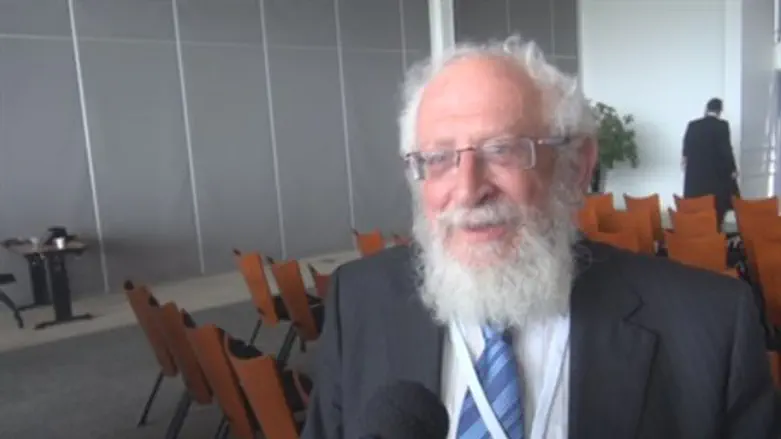
Rabbi Israel Rosen, Head of the Tzomet Institute, called at week's end to allow women to be certified as kashrut supervisors, whose job it is to make sure restaurants and food manufacturers stand up to the precepts of kashrut.
Speaking at the 25th annual conference on halacha and monetary laws in Jerusalem at week's end, Rabbi Rosen gave an overview of halachic opinion on the issue and said: "I think we should open wide doors and let women into the world of kashrut in Israel, here and now."
Rabbi Rosen said that there is no question that women can be trusted with the issue of kashrut. He said that some poskim, or halachik decisors, determined that women should not be kashrut supervisors because of "modesty issues." Nonetheless, he came out strongly in favor of opening up the profession to women, while noting the High Court has instructed the Rabbinate to allow women to be tested for the position.
"This field is good for women in terms of their abilities," he said, "and also in terms of the flexibility of the job – it lets one scatter the hours so the women will be able to fit them into their schedules."
The rabbi noted that social norms have changed considerably from times when women's role in the public sphere was considered controversial, with religious women taking part in all aspects of public life.
"If we all employ female teachers, in contravention of the Mishna, Gemara and halacha that determine that women cannot teach children because the children's fathers are often present there, and the entire press is full of stories about harassment of teachers, yet even the haredi education system does not avoid employing women, there is no reason for them not to enter this field, as they entered the field of rabbinical advocates.
"I think women can raise the quality [of the supervision]," he added, "based on what I hear about the norms of the kashrut supervisors. If we allow in women – especially today, in the age of feminism, when people are looking for challenges, for women to enter all sorts of corners in the religious life – I think they can turn that into a challenge."
Rabbi Rosen noted that the poskim see a problem with giving women the force of authority, but said that this can be solved by defining the rabbi who signs the kashrut certificate as the actual source of authority vis-à-vis the business owner. "If all we need is to define the role as not having the force of binding authority, then we will define it thus."
Rabbi Ratzon Arusi, the Rabbi of Kiryat Ono and a member of the Chief Rabbinate Council, added another stipulation to Rabbi Rosen's condition, and said that the female kashrut supervisors must follow the rules of modesty.
"The Chief Rabbinate did indeed look into the matter and approved allowing in female kashrut supervisors, but in should be stressed that there is a need to look into every case individually, to avoid modesty issues," he stated.